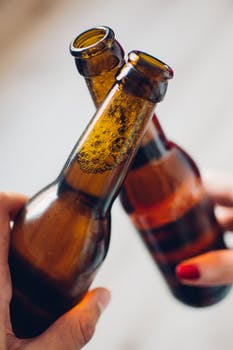
I am a 20-year-old sorority girl, but I have yet to drink a single drop of alcohol.
I am waiting until my 21st birthday to drink, because it is the law. All of us ought to respect it.
The 21-year-old drinking age in the United States exists to try to limit drunk driving incidents and support brain development that continues into early adulthood.
My parents never told me I couldn’t drink. My friends certainly wanted me to drink. Yet, it just didn’t feel right. I couldn’t justify intentionally breaking one law when I don’t intentionally break any others.
In 1984, President Ronald Reagan signed the National Minimum Drinking Age Act, requiring states to raise the drinking age to 21 or face a 10-percent cut to federal highway funding. Every state chose to adopt the higher drinking age.
A national problem with drunk driving provided the motive. In the late 1960s and 1970s, all states held their drinking age at 18 years old, which resulted in a greater number of car accidents due to drunk drivers. The National Institutes of Health stated in the 1970s that 60 percent of all deaths caused by traffic were connected to alcohol, including more than two-thirds of those involving 16- to 20-year-olds.
In the years following the passage of Reagan’s law, drunk-driving accidents dropped by 50 percent, mostly among teens and young adults.
Underage drinking still has a profound effect on the mental health of many young people.
Teenagers who drink before 15 are six times more likely to have alcohol dependence or abuse in their adult years than those who start drinking at age 21, according to a study by the Center for Behavioral Health Statistics and Quality. Statistics continue to support a 21-year-old drinking age. Underage drinking and driving is still a major problem, causing about 25 percent of all car crashes involving teens, a study from the Centers for Disease Control and Prevention found. It also leads to alcohol addiction as they grow older. A survey of 14 million people who are alcohol dependent found that 95 percent began drinking before age 21.
Another issue is binge drinking, which is understood as the drinking of alcohol in abundant amounts in a short timeframe. Several studies published by Center for Disease Control said binge drinking is the most common, costly, and deadly pattern of excessive alcohol use in the United States.
Starting binge drinking habits early in life could lead to larger drinking issues in the future. A study found in Alcoholism: Clinical and Experimental Research stated that men and women who started drinking after puberty drank half as much as those who began drinking prior to puberty.
“Having the first drink during puberty was associated with elevated drinking levels and more hazardous alcohol consumption patterns,” the study said. People who put off drinking have more time to build healthy habits. Underage drinking damages the brain. A teenager who drinks has more damaged nerve tissue compared to teens who don’t drink.
“The adolescent brain is still undergoing several maturational processes that render it more vulnerable to some of the effects of substances,” said Susan Tapert, a neuroscientist at the University of California, San Diego.
Although evidence supports the 21-year-old drinking age, the fact still remains that the majority of young adults will probably drink at some point before they turn 21 years old. Redirecting the culture away from binge drinking would require a major cultural shift — one that may take generations to overcome. True, police can crackdown on college campuses and threaten to shutdown parties, but people will still drink.
Currently, about one in seven teens binge drinks, yet only one in 100 parents believes their teens binge drink, based on a study from the Center for Behavioral Health Statistics and Quality. By raising awareness to the situation, and perhaps only by doing so, can there be a widespread movement against underage drinking.
The law aims to do good and as honorable citizens, we should respect that.
When my birthday rolls around, I will go out for my first drink. I’m not going to lie, I’m excited.
Josephine von Dohlen is a junior studying history.

